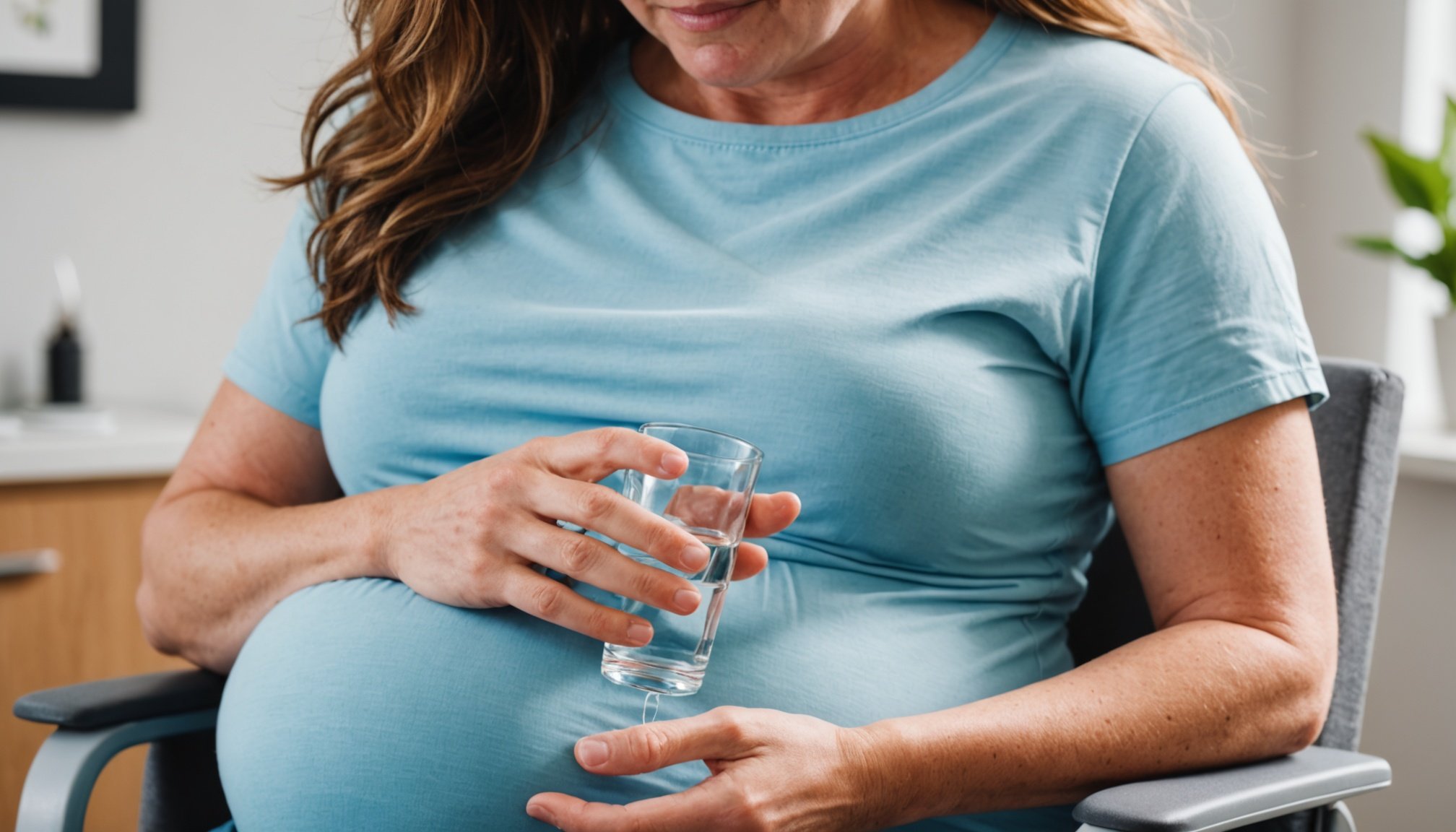Overview of Dehydration in Pregnancy
Dehydration during pregnancy is a critical concern with potential impacts on both the mother and developing foetus. Adequate hydration is vital for expecting mothers, playing an essential role in sustaining maternal health and supporting foetal development. Women require increased fluid intake, as dehydration can affect pregnancy by leading to complications such as premature labour, low amniotic fluid, and even congenital disabilities.
In the UK, awareness of dehydration risks is increasingly important. It is estimated that a significant number of pregnant women may experience dehydration at some point during their pregnancy, influenced by factors such as increased metabolic needs and environmental conditions.
In the same genre : Essential Guidelines and Tips for Pregnant Travelers: Air Travel Regulations from UK Airlines
Statistics indicate that a substantial percentage of pregnant women in the UK may suffer from dehydration symptoms yet may not recognise them early. This lack of awareness underscores the importance of education regarding proper hydration. Healthcare guidelines in the UK emphasise hydration’s crucial role, recommending increased fluid intake to offset the additional demands of pregnancy.
Given the profound impact that dehydration can have on pregnancy outcomes, both expectant mothers and healthcare providers must remain vigilant about the signs of dehydration and adhere to recommended guidelines to ensure maternal and foetal well-being. Understanding these dynamics can lead to better health outcomes and inform strategic interventions.
In parallel : Essential Nutrient Guidelines for Vegan Pregnant Women in the UK: Key Considerations for Optimal Health
Essential Dehydration Symptoms to Monitor
Understanding dehydration symptoms during pregnancy is crucial for both expectant mothers and healthcare providers. Recognising these signs early can prevent severe complications.
Common Physical Symptoms
- Dry mouth and throat are initial indicators of dehydration, often accompanied by fatigue and dizziness. These symptoms arise when the body lacks sufficient fluids to perform daily physiological functions efficiently. Another frequent sign is decreased urine output, signalling that the body is retaining water to preserve its vital operations.
Less Common but Serious Symptoms
While less prevalent, some symptoms warrant greater concern. A rapid heartbeat may occur as the heart works harder to pump a reduced blood volume. Headaches and confusion can also manifest due to decreased oxygen flow to the brain. Additionally, dry skin and extreme thirst should not be ignored, as they indicate more critical fluid deficiency levels.
Symptoms Indicative of Severe Dehydration
In severe dehydration cases, indicators such as sunken eyes, low blood pressure, and altered mental status can develop. These symptoms require immediate medical intervention as they reflect significant physiological distress. Pregnant women should remain vigilant for these signs and seek medical advice promptly to ensure both maternal and foetal health.
Factors Influencing Hydration in Pregnant Individuals
Understanding the complexities of hydration factors during pregnancy is essential for maintaining health. Various elements, such as climate and seasonal variations, can drastically impact the hydration needs of expectant mothers.
Climate and Seasonal Variations
The weather plays a significant role in determining hydration requirements. During hot and humid months, pregnant individuals may need to increase their fluid intake to compensate for fluid loss due to sweating. Conversely, colder climates might cause a decreased thirst sensation, yet maintaining adequate hydration remains equally important.
Dietary Factors
Diet also substantially affects hydration levels. Some foods, particularly those high in salt and processed sugars, can contribute to dehydration during pregnancy. Conversely, consuming foods rich in water, such as fruits and vegetables, supports proper hydration.
Lifestyle Considerations
A busy lifestyle, especially in urban UK regions, may lead to neglecting adequate fluid intake. Pregnant women often juggle multiple responsibilities and may inadvertently overlook the necessity of frequent hydration.
The combination of these elements underscores the importance of tailored approaches to meeting hydration needs during pregnancy. Recognising these factors allows for strategic planning in maintaining optimal hydration, ensuring better health outcomes for both mother and baby.
Expert Advice on Prevention and Management
In pregnancy care, maintaining proper hydration is crucial. Following expert advice on hydration management can help prevent complications. Healthcare professionals typically recommend pregnant women increase their daily water intake to about 1.5 to 2 litres. This ensures the mother’s body can accommodate the increased blood volume and support the growing foetus.
Electrolyte balance is another essential factor. It’s important not only to consume enough water but also to maintain adequate levels of electrolytes like potassium and sodium. A well-balanced diet can support these levels, increasing the body’s efficiency in retaining fluids.
When considering hydration, certain signs indicate the need for increased fluid intake. These include dry skin, fatigue, and less frequent urination. Addressing these early can prevent more severe dehydration symptoms.
For effective hydration, include foods and drinks high in water content, such as soups, fruits, and herbal teas. Encouraging regular fluid intake can be achieved by setting reminders or using hydration tracking apps.
Recognising warning signs that require medical consultation is essential for ensuring health. Symptoms such as extreme thirst, confusion, or unconsciousness warrant immediate professional assessment. Numerous resources are available in the UK to support pregnant women in staying well-hydrated.











